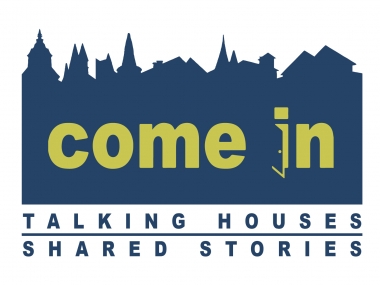Final Come in! - Talking Houses /Shared Stories Knowledge Transfer Meeting
Join the Cultural Heritage in Action's next virtual peer-learning session to discuss how cultural heritage can be a driver for local community-building and an incentive for improving well-being via volunteering.

The 3-day long peer-learning visit will take the interested participants to Budapest where they will be hosted by the Contemporary Architecture Centre (KEK). KEK is a grass-roots, bottom-up initiative brought to life 15 years ago. Ever since it has been promoted by urban architects who will present Budapest100 as a good practice and will propose many interesting discussions to foster peer-learning among the participants.
Budapest100 is an open doors festival where dwellers open their doors to visitors but it is even more! These visits are not organised only to look around the walls, roofs, ceilings, and decorations. It is a people-to-people programme. Visitors meet the hosts, they are welcomed, their questions are responded to, sustainable relations between citizens and dwellers are established. The programme mobilises volunteers, neighbours, owners, as well as cultural heritage lovers who enjoy networking with other peers. The COVID-19 pandemic actually resulted in a record number of volunteers supporting the 10th Budapest100 festival last year!
The virtual peer visit in Budapest will take place between 25th and 28th May 2021, each morning. The daily programmes will kick off with an inspirational video about the life of Budapest residents, volunteers, architects, hosts of Budapest100, etc. Following these short documentaries and interviews, KEK will guide the participants to moderated discussions around:
• Built cultural heritage: what does it represent to citizens and for a city?
• How to engage communities in urban development and urban planning?
• How to work with volunteers and keep their motivation high?
• What do transferable practices look like? What can be transferred and how to other cities? What could be transferred from this good practice to other cities and what could be transferred to Budapest from the participating cities?
Budapest100 was also the good practice six European cities (Forlì, Varaždin, Pori, Plasencia, Gheorgheni, Targówek) transferred within the Come in! – Talking Houses / Shared Stories URBACT Transfer Network, led by Municipality of Újbuda, Budapest. During the joint session on 27 May 2021 between 2 and 5 PM, they will share their first-hand experiences with interested participants. If you are interested to be part of this exciting virtual journey and most of all, these vibrant discussions with experienced URBACT partners, please sign up on this online form by the 6th of May 2021 (you can apply only for the whole session). Please remember to answer all the questions on the form otherwise you will not be eligible.
